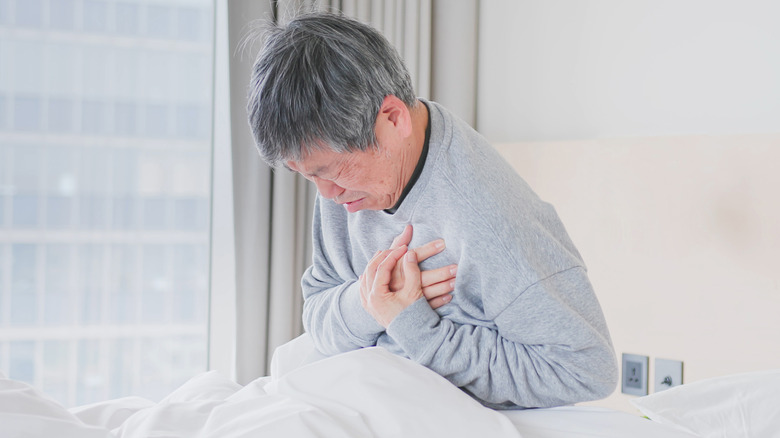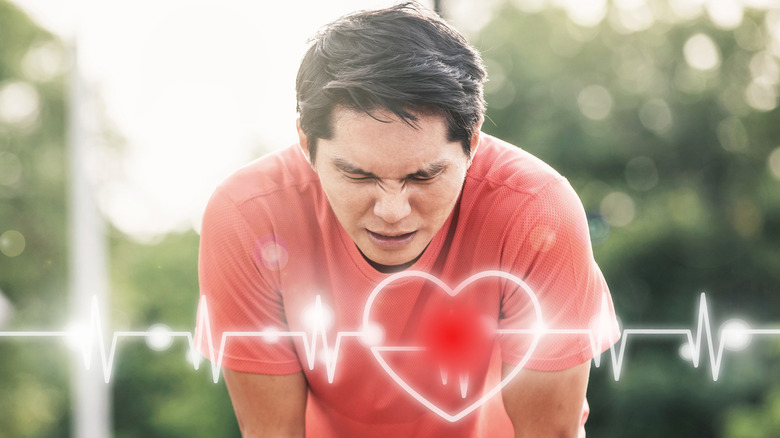Here's What Your Body Is Trying To Tell You If You Wake Up With Chest Pain
If you suddenly wake up with chest pain one day, it's bound to make you panic. According to a 2006 study published in Family Practice, about 20% to 40% of people experience chest pain symptoms at least once in their life. Of these individuals, only 1.5% of the population reaches out to a physician to consult about chest pain.
If you have chest pain, you might feel pressure on the upper abdominal region, along with a sensation of inflammation or fullness, per the Mayo Clinic. At times, the chest pain could be accompanied by shortness of breath. Other times, you may feel either a dull, persistent ache or a crushing pain that comes and goes. No matter the reason, it's always best to go to a doctor for immediate consultation and to figure out what you can do to minimize the pain. The Cleveland Clinic advises going to the nearest emergency room if the chest pain lasts longer than five minutes and doesn't go away after taking medication.
What does it mean if you have chest pain in the morning?
Luckily, not all chest pain is life-threatening. Sometimes, you may get a stabbing pain in the chest because of muscular strain, according to MedicalNewsToday. It can happen if you rest in a painful sleeping position or sleep on a poorly supporting mattress, exerting pressure on tendons around the ribs. Injuries can also be a reason for morning chest pain, notes MedicalNewsToday. It may be caused by a forceful blow, bruises, or even fractures in the rib cage. However, most injury-related chest pain happens at the time of an accident, and the person would likely hear a cracking sound.
Cardiologist Dr. John Higgins told Livestrong that angina can also cause morning chest pain. Angina occurs when the heart muscles don't get sufficient blood or oxygen because of blocked arteries. According to Dr. Higgins, this pain can get worse in the morning or after you lie down, mostly because of the sudden blood flow from the legs to the heart. Furthermore, it may also be a sign of coronary artery disease. "In the morning, the circadian rhythm increases stress hormones that make the heart pump harder and worsen angina," Dr. Higgins explained to Livestrong.


